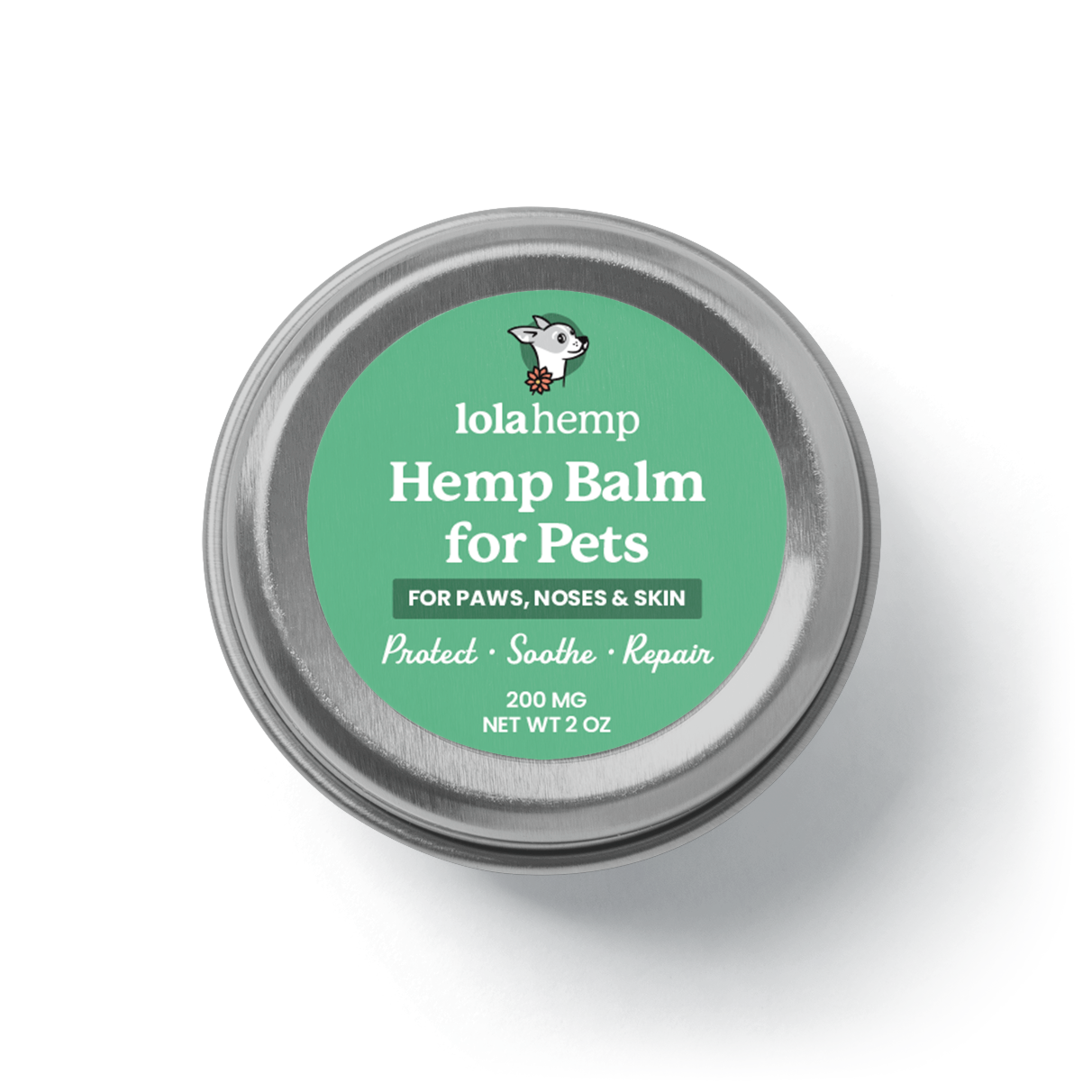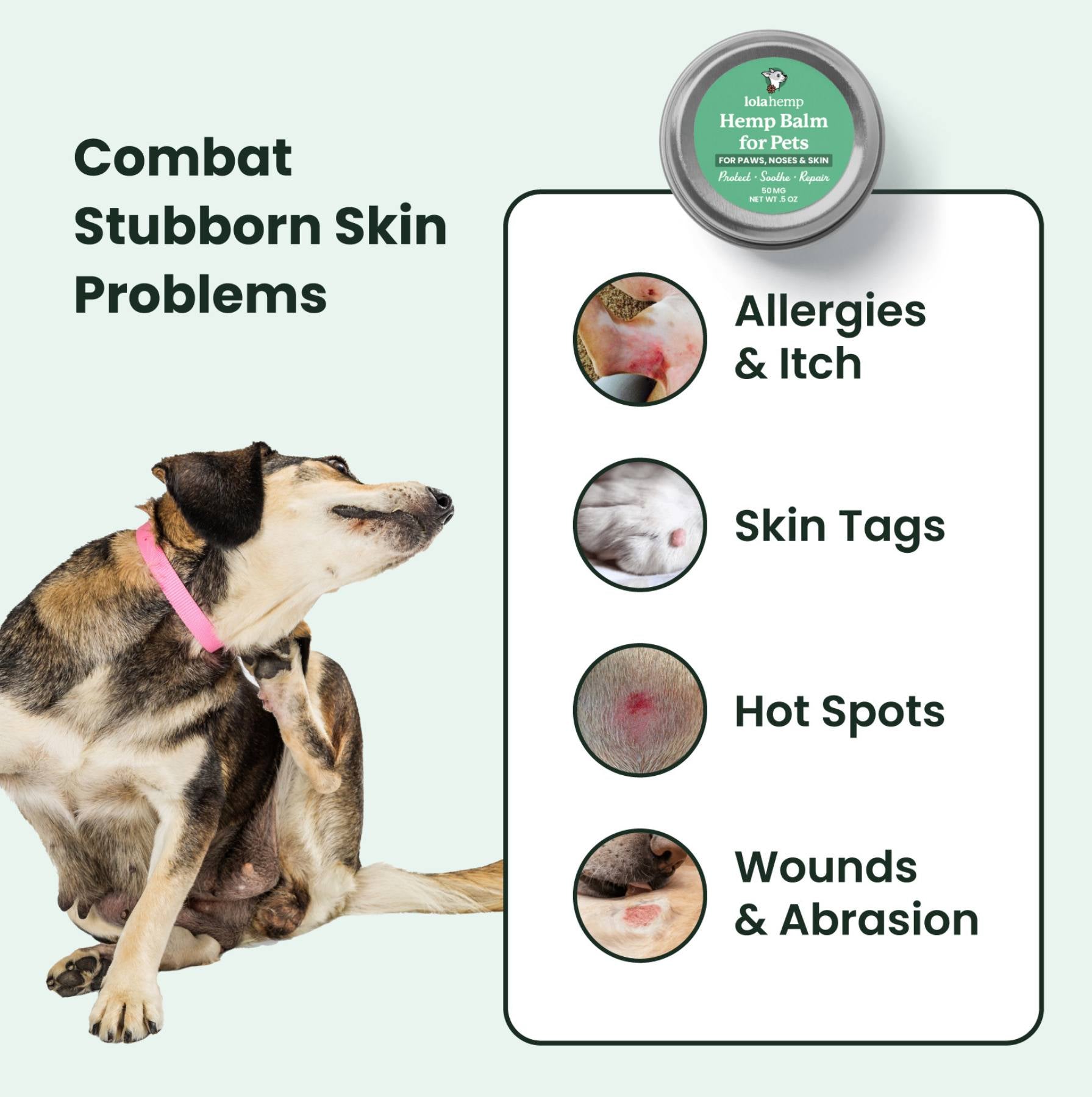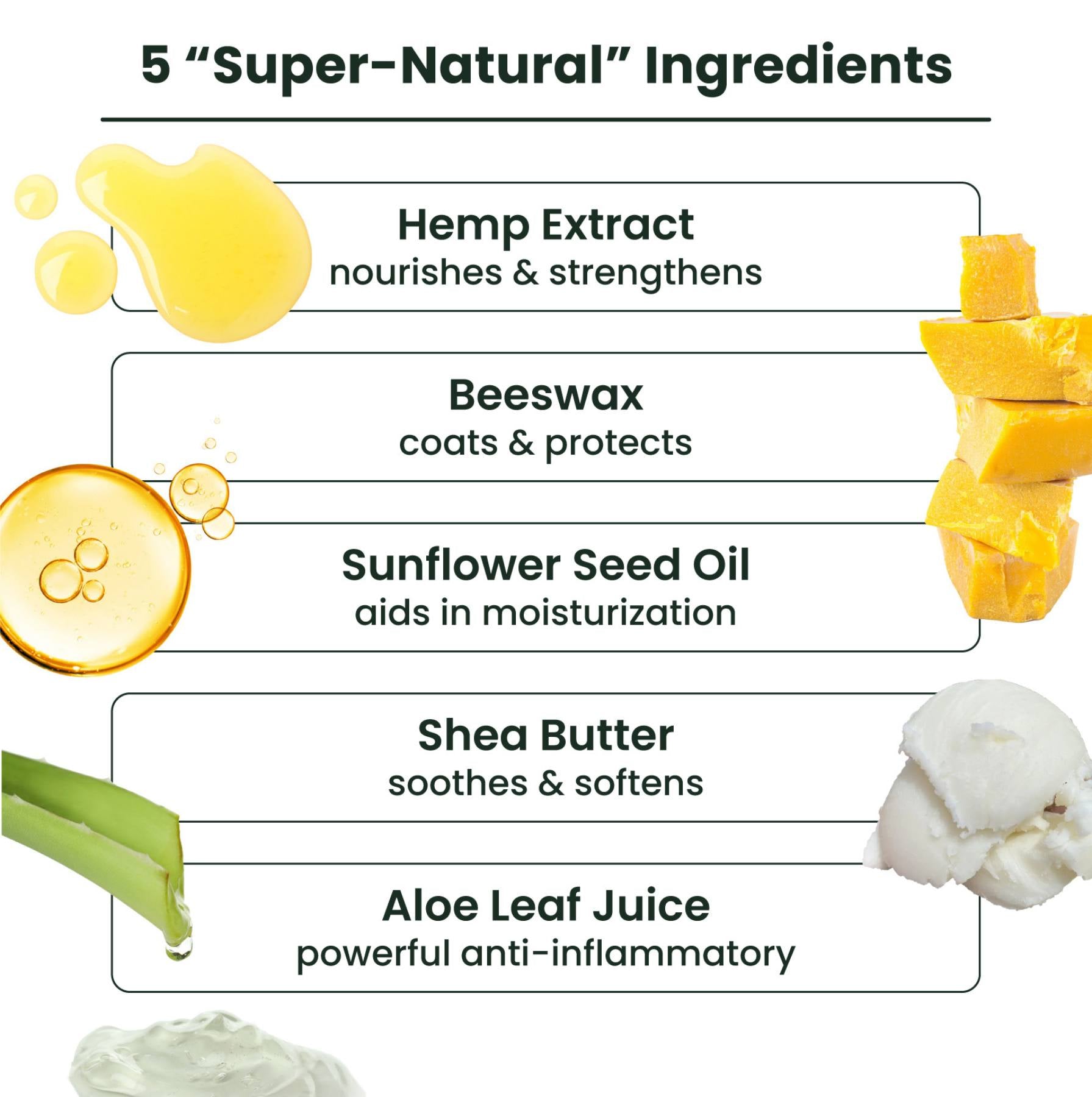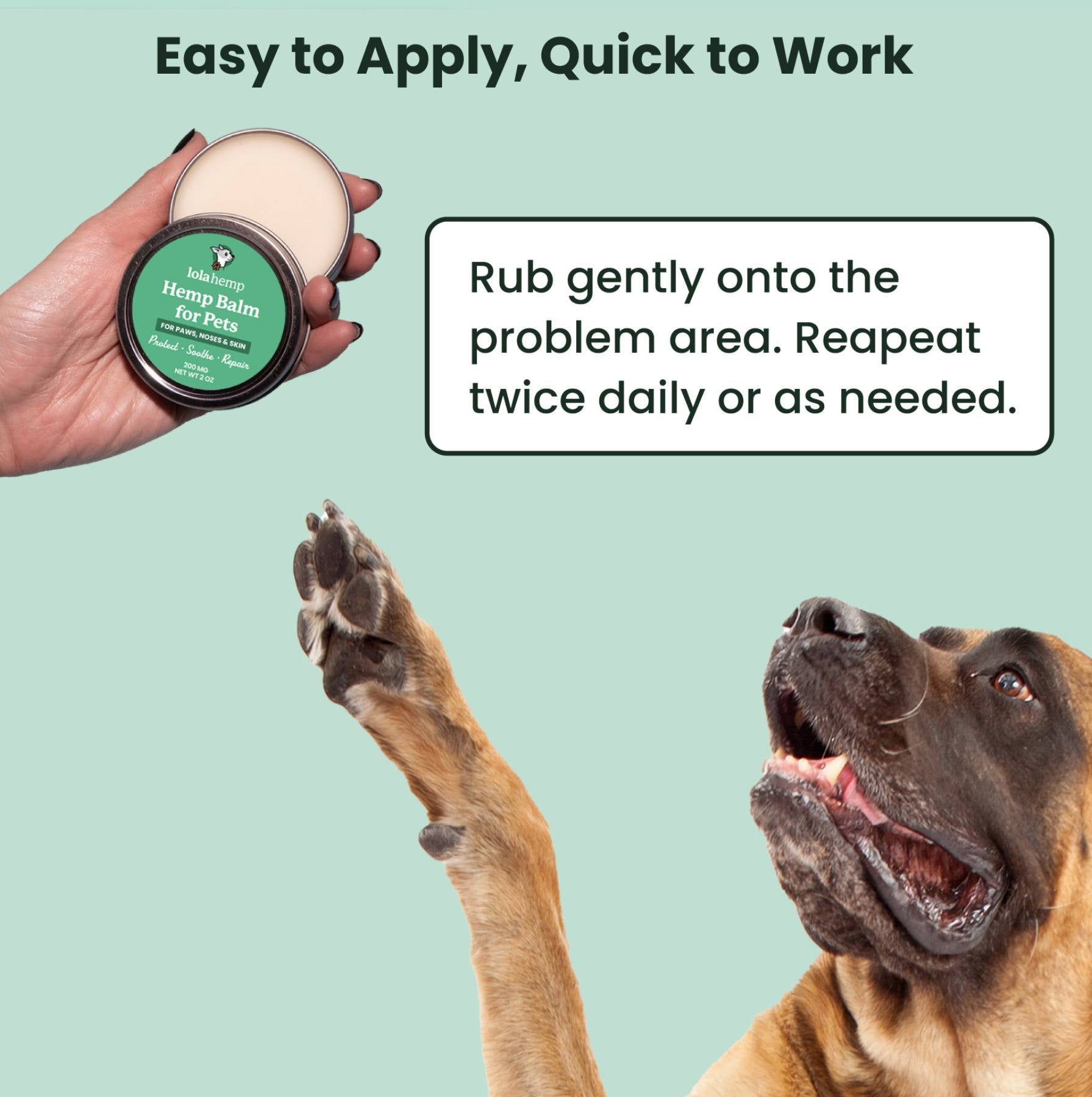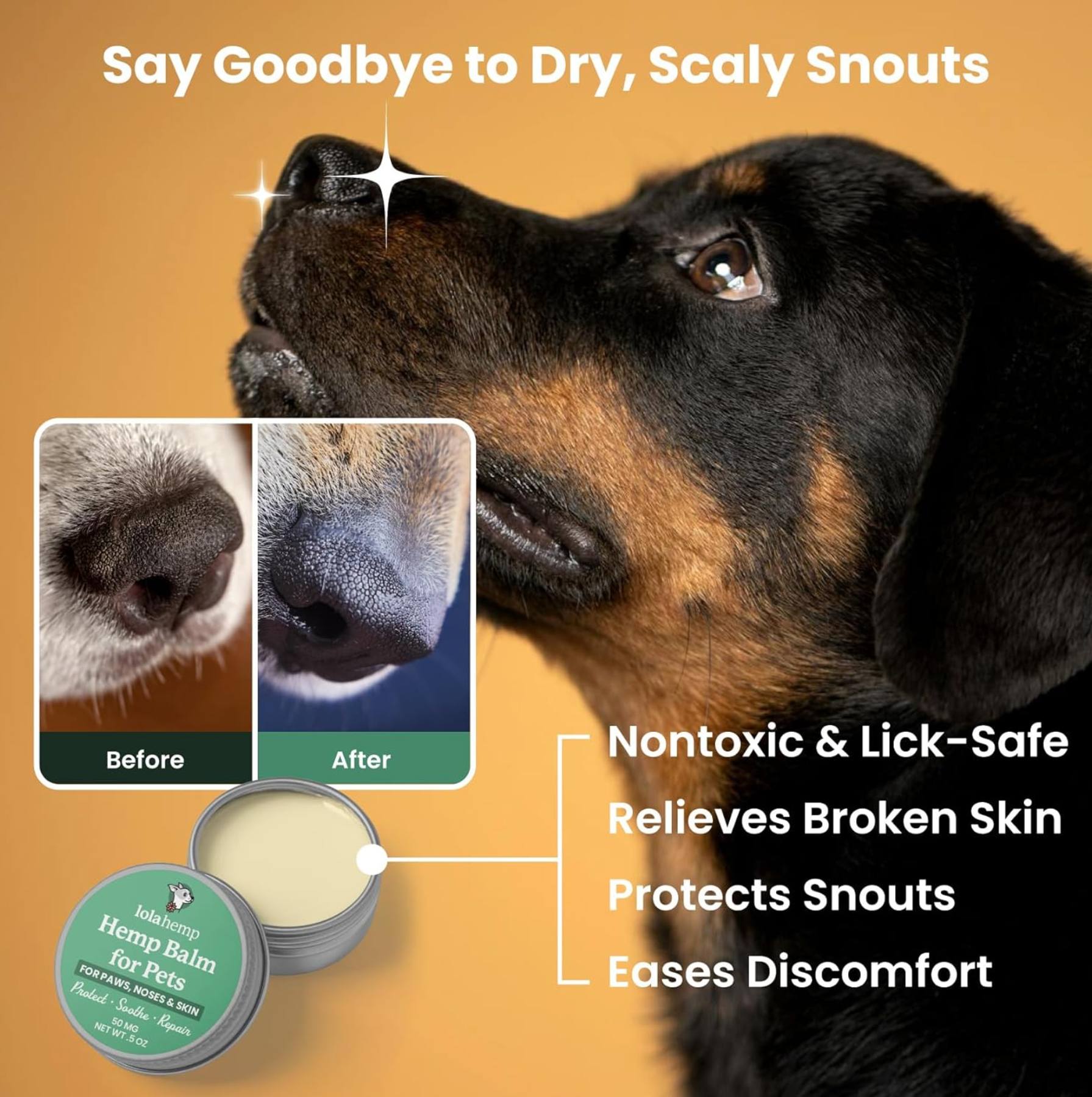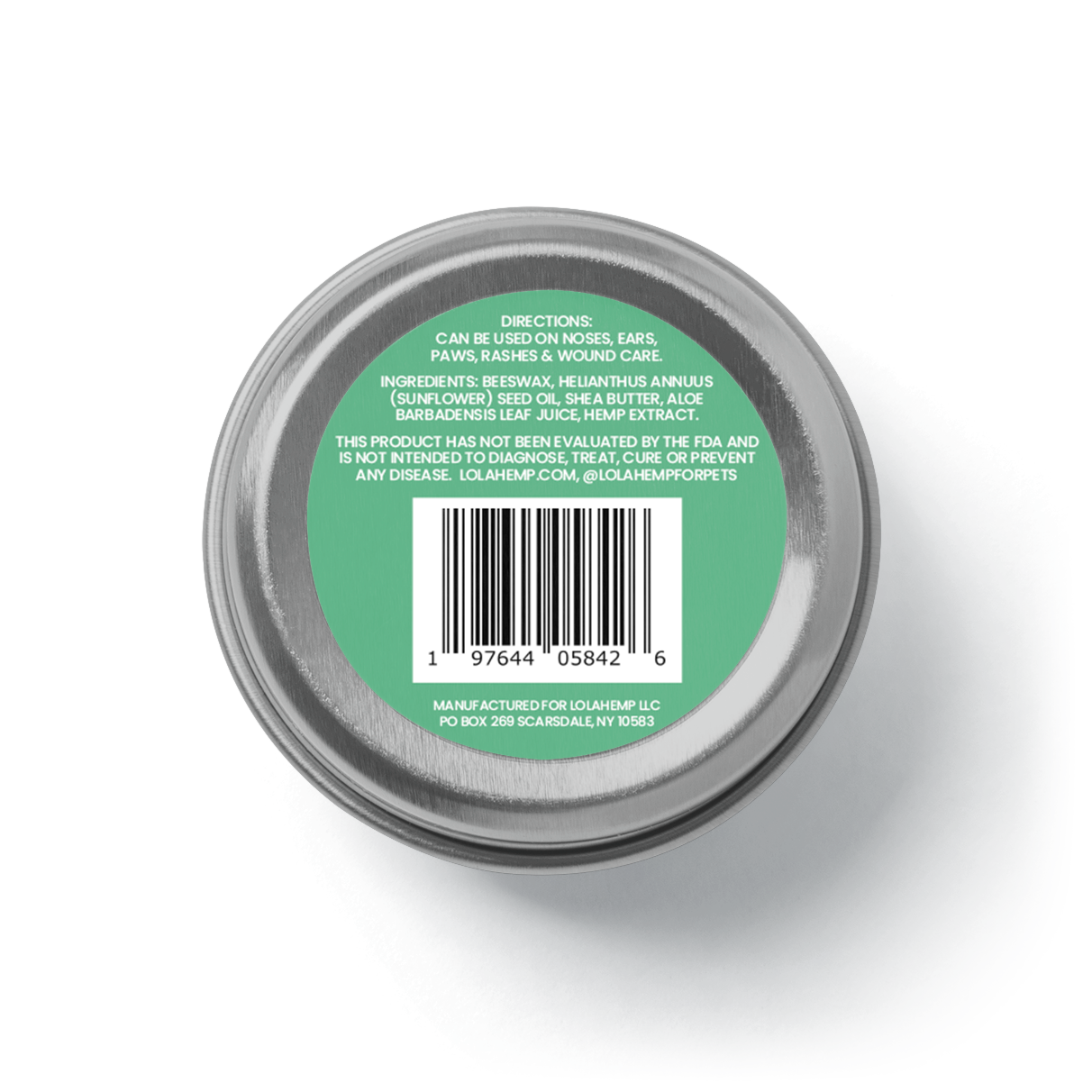Itching, medically known as pruritus, is a sensation that provokes specific behavior like scratching, self-biting, chewing, or licking paws. Itching is the outward symptom of an underlying condition, for example, skin disease, and can be caused by various factors.
As you address your cat's underlying causes for having itchy paws, the best thing you can do use a topical relief balm or salve to reduce your cat's itchiness. This helps them relax and prevents them from scratching deeply and worsening the issue.
If your cat itches consistently for long enough, it opens up the chances of infection, hot spots, and other deeper skin issues. The following could be a few of the causes of your cat's itchy paws:
- Dry, Cracked Paw Pads: Your cats' paws can crack when they walk on hot cement or sand leading to irritation, itching, and pain.
- Poor Hygiene: Dirt and moisture can get stuck on your cat’s paw pads when they are playing outdoors. The dirt can irritate the paws leading to infection, and should therefore be cleaned after play.
- Allergies: Cats can be allergic to food, house dust, pollen, or insects like fleas. Your pet’s immune system will react to these foreign substances and they will exhibit symptoms like sneezing, inflammation, and itching.
- Bacterial Infections: If your cat has an inflamed, itchy paw and scratches too deep, they expose the site to bacterial infections.
- Fungal Infections: This condition is caused by ringworms and is very itchy for some pets. Fungal infections are also highly contagious.
- Parasites: Mites, fleas, and lice are some of the parasites that can cause itching in cats. Flea bites are painful and very itchy but some pets can also be sensitive to flea saliva which causes itching for weeks.
5 of The Best Home Remedies for Itchy Paws in Cats
There are simple remedies for soothing your cat’s itchy paws.
1. Bathe Your Cat
If your cat can tolerate a bath, wash them in warm water using medicated shampoos recommended by your veterinarian. Do not use human shampoos; use cat shampoos that soothe irritation and fight infection.
2. Apple Cider Vinegar
You can easily make this remedy at home by simply mixing 50% apple cider vinegar and 50% water. The apple cider vinegar solution is good for managing mild yeast infections, simply soak your cat’s paws in the solution for 5 minutes. Do not use it on broken paws because it can aggravate the irritation and make sure your pet does not lick the solution because it can cause intestinal upsets.
3. Baking Soda
Use 50% water and 50% baking soda paste to dry out rashes on your cat’s paws. Apply the paste on the itchy region and give it 20 minutes before you rinse it. Do not allow your cat to lick the paste, pay attention when using it.
4. Chamomile and Herbal Tea Soaks
Chamomile, green tea, and calendula can soothe irritated skin. Add the herbs to a warm water bath for up to 5 minutes, to relieve irritated, itchy paws.
5. Colloidal Oatmeal Baths
Colloidal oatmeal has been used for years to remove allergens trapped in a pet’s skin or paws, soothing the paws, nails, and skin. Grind the oatmeal into a fine powder and boil it to extract the colloidal, then mix it with water. Rub this solution on your dogs' paws and leave it for 10 minutes then rinse.
How to Prevent Itchy Paws in The Future
As a devoted pet parent, you can keep your pet’s paw itch-free by paying attention to the environment they play in to avoid exposure to substances like pollen, dust, and food that cause allergies. Regular grooming also keeps paws dirt-free, and preventative tick & flea treatment can stop parasites from sticking to your pet’s paws.
Conclusion
Itchy paws can be uncomfortable for your feline friend but there are simple home remedies for soothing itches. Apple cider vinegar, chamomile, baking soda, and baths can remove dirt, calm itching, and prevent infections. Work with your vet and pay attention to your cat’s needs to keep their paws healthy.
Frequently Asked Questions About Home Remedies for Itchy Cat Paws
What home remedy works best for itchy cat paws?
Many cats respond well to chamomile soaks, oatmeal baths, or a gentle baking soda paste, which can calm irritation and reduce itching.
Is apple cider vinegar safe for itchy cat paws?
Apple cider vinegar diluted 50/50 with water may help mild yeast issues, but it should never be used on broken or irritated skin.
Can I use baking soda on my cat’s paws?
Yes, a 50/50 baking soda and water paste can soothe rashes, but monitor your cat closely to prevent licking.
How often can I soak my cat’s paws in herbal tea?
Chamomile or green tea soaks can be used a few times per week to calm irritation, as long as your cat tolerates foot baths.
When should I take my cat to the vet for itchy paws?
If itching persists, worsens, or is accompanied by swelling, redness, discharge, or limping, a veterinary evaluation is recommended.

